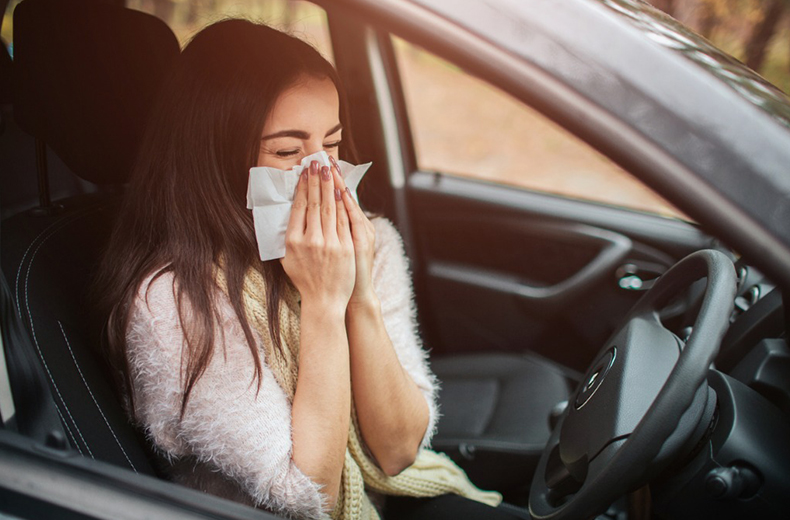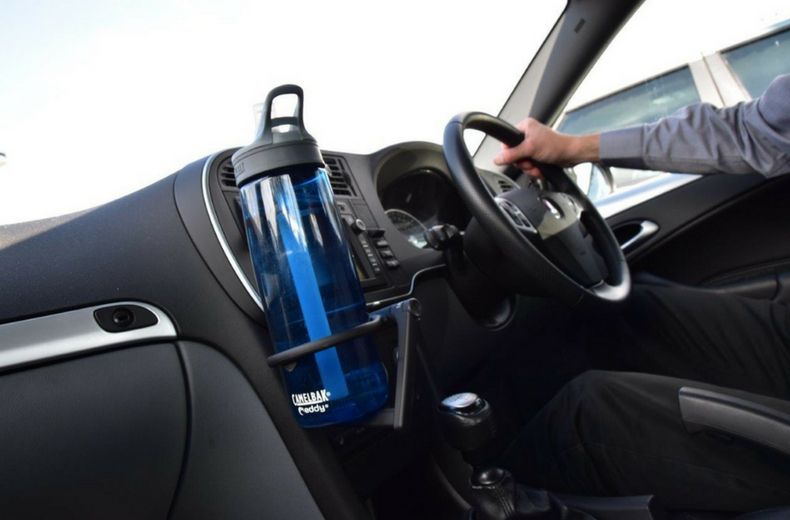In fact, there are a number of things that can significantly affect your driving ability that you might not be aware of.
Read on in this driving advice guide to find out what common occurrences can cause unnecessary danger while you're driving and how to prevent them.
Driving while dehydrated
While many of us top up our oil, coolant and windscreen wash before going on a long journey, few of us consider our own fluid levels.
Driving in a stuffy car on a hot summer’s day can cause you to lose significant amounts of water. Being dehydrated affects your concentration levels and co-ordination.
The majority of UK drivers don’t know the symptoms of dehydration. These include:
- Loss of focus
- Feeling drowsy
- Dry mouth
- Feeling dizzy or lightheaded
- Slower reaction times
- Muscle cramps
What you can do to stay safe
To keep well hydrated, health authorities recommend drinking around two litres of water a day, especially in hot weather.
Make sure you drink enough non-alcoholic fluids before setting out on car journeys, even if it means taking regular toilet breaks along the way. Don’t overuse the air conditioning as this can have a drying effect on the atmosphere.
If you do feel tired while driving, stop for a drink that contains caffeine or sugar to give you a boost or take a rest until you feel more awake.
Taking hay fever medicine

With hay fever affecting an estimated 13 million people in the UK, many motorists will take some form of medication when pollen levels rise to try to relieve symptoms such as a runny nose and itchy eyes.
But some antihistamine tablets can cause drowsiness, nausea and blurred vision, as well as increasing your reaction times – all of which make you more likely to have an accident.
If you do cause a crash, you could end up with a criminal record. The police can ask you to do a ‘field impairment assessment’ and take a roadside drugalyser test. If they think you’re not fit to drive, you’ll be arrested and could be prosecuted.
A conviction for drug-driving carries a minimum one-year driving ban and an unlimited fine. In extreme cases, you could receive a six-month jail sentence.
What you can do to stay safe
Always check the label of any medication you take before getting behind the wheel. If in doubt, ask your pharmacist if it could affect your ability to drive. Some remedies are covered by the same drug-driving laws as cocaine and cannabis.
If your symptoms are mild, stick to nasal sprays and eye drops that won’t cause drowsiness. Keep windows closed, even when parked – if left open they can trap pollen in the car.

RAC sale – up to 33% off*
• Roadside cover from £5.29 a month†
• We get to most breakdowns in 60 mins or less
• Our patrols fix 4/5 breakdowns on the spot

Jetlag
Many of us don’t think twice about driving home from the airport after arriving back from holiday. But driving while jetlagged is potentially dangerous as your body clock may be out of sync.
Travelling through several time zones can disturb your sleep patterns, making you tired, and less able to concentrate. The bigger the difference between time zones, the more likely it is that you could suffer from jetlag.
What you can do to stay safe
If you’re travelling long-haul through several time zones, consider getting a taxi to and from the airport so you won’t have to drive at all. Another option is to check into a hotel near the airport to get some shuteye before going home.
If you’re already driving home and start to feel sleepy, pull over at the nearest service station and get some rest. This should be for as long as you need to feel alert again.
Getting some food and drink can help as well. Caffeinated drinks such as coffee should perk you up. Eat something that will give you slow-release energy, such as porridge, wholemeal toast or a banana.

RAC sale – up to 33% off*
• Roadside cover from £5.29 a month†
• We get to most breakdowns in 60 mins or less
• Our patrols fix 4/5 breakdowns on the spot











